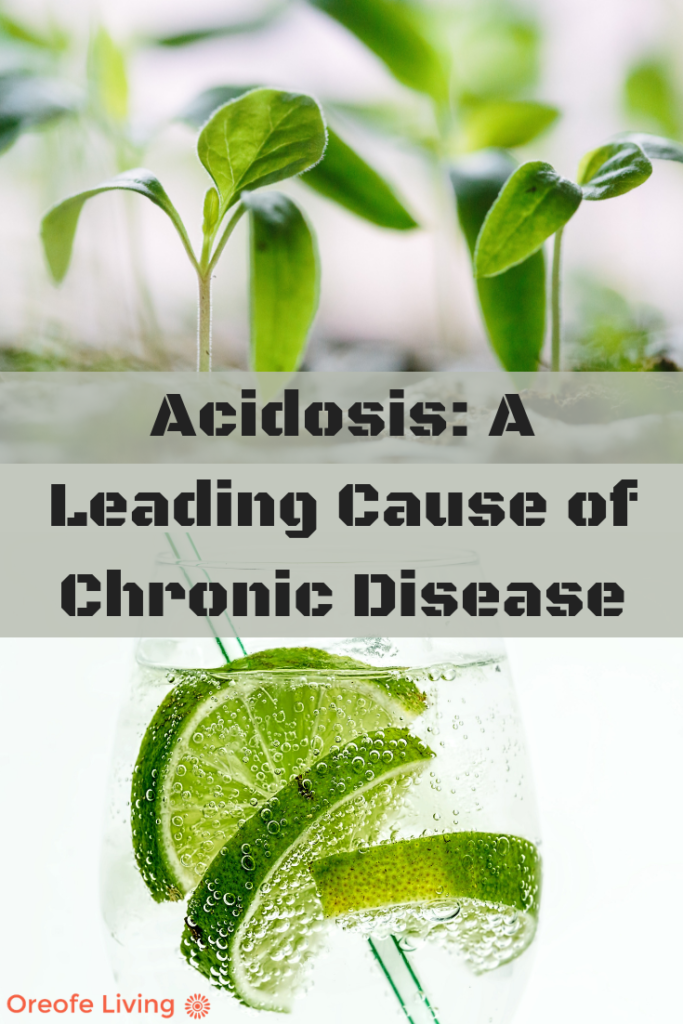Many people recognize life as a balancing act. Good health can be seen as such as well. The body contains all sorts of cells, compounds, and minerals that work together to achieve optimal function – and maintain balance. The blood is the life force that transports nutrients and hormones throughout the body, and its balance is essential for our well being.

What is Acidosis?
Acidosis is simply a biochemical imbalance in the body. The acidity and alkalinity of blood and other bodily fluids is measured using a logarithmic scale known as pH. This scale is used to determine how many hydrogen ions are found in any given aqueous solution. The normal pH of blood is between 7.35 and 7.45, with 7.4 being ideal. When the pH value of blood drops below 7.35, the body is said to be in a state of acidosis. When the pH value exceeds 7.45, the body is alkaline. An acidic body typically leads to many complications.
Respiratory Acidosis
Respiratory acidosis develops when carbon dioxide is not properly removed from the lungs during exhalation. The carbon dioxide accumulates in the blood and other bodily fluids, causing the pH to become more acidic. Oftentimes, respiratory acidosis is a result of lung disease or conditions that affect proper breathing such as a compressed chest, obesity, sleep apnea, and pneumonia.
Metabolic Acidosis
Metabolic acidosis develops when the body produces too much acid, or the kidneys cannot release enough acid from the body via urine. Bicarbonate is an alkaline substance produced by the body to buffer, or neutralize, the acidity of blood and tissues. When conditions become too acidic, the production of bicarbonate will eventually become exhausted. The decreased production of buffer leaves the body imbalanced.
Latent Acidosis
Latent acidosis is a chronic condition in which the body loses its bicarbonate, along with other buffers, due to the lack of a well-balanced diet. This type of acidosis is more common than respiratory acidosis and metabolic acidosis. Although it is more common, the solution to resolving latent acidosis is simple.
Causes of Acidosis
The causes of acidosis vary depending upon the type. However, diet has the biggest influence on the acid-base balance throughout the body. Diet rich in animal protein have been found to cause more acidity in the body than plant-based diets. Additional causes of acidosis include:
- exposure to environmental toxins
- stress
- anxiety and panic
- negative thoughts
- dehydration
- refined carbohydrates
- processed foods
- alcohol
- sedentary lifestyle
Importance of Acid-Base Balance
Maintaining healthy blood and tissue pH is essential for so many different biochemical processes. They must operate optimally to avoid conditions such as cancer, type 2 diabetes, acne, high blood pressure, tumors, and gout. Blood pH can influence:
- structure and function of molecules, cells, and organ systems
- protein metabolism
- cell membrane structure
- distribution of electrolytes
- bone health
A healthy, alkalized body will support the structure and function of the different components within the body. An acidic state forces the body to compensate for nutritional deficiencies. As the body tries to retrieve nutrients from stores within tissues, disease manifests from tissue deterioration. For instance, minerals such as calcium and magnesium are taken from bone tissue during the body’s efforts to maintain normal mineral levels in the blood. The frequent borrowing of minerals from the bone leads to bone degradation, and eventually osteoporosis.
Also, many proteins are pH sensitive. This means that proteins can ultimately lose their shape and function. Hormones, immune system antibodies, and digestive enzymes can all be negatively impacted by an acidic body! Fortunately, there is a natural and simple solution.
How to Improve Your Acid-Base Equilibrium and Reverse Acidosis
Acidosis and disease does not have to be permanent. We can use whole foods and alkaline water to improve ill conditions. Just as it took time to fall into a state of acidosis, it will take time to become alkaline. But, no worries – not as long as you may think. Consistency is key. By consuming highly alkalizing foods frequently throughout the day, as well as eliminating highly acidifying foods, one can notice some improvements in about one month. The following are foods that have demonstrated fairly high and moderate alkalizing potential.
- leafy greens
- parsley
- microgreens
- cucumbers
- celery
- wheatgrass juice
- fruits
- root vegetables
You may ask, “What makes these foods more alkalizing, anyway?” It’s the minerals! Also, it’s how these foods are digested – they produce minimal waste. Although minerals make up a very small percentage of weight in the body, they are the most important constituents, and support structure and function like no other.

